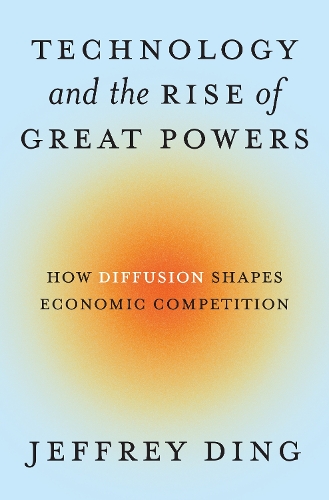
Technology and the Rise of Great Powers: How Diffusion Shapes Economic Competition
(Paperback)
Available Formats
Publishing Details
Technology and the Rise of Great Powers: How Diffusion Shapes Economic Competition
By (Author) Jeffrey Ding
Princeton University Press
Princeton University Press
20th August 2024
United States
Classifications
Tertiary Education
Non Fiction
Political science and theory
Impact of science and technology on society
Economic history
338.064
Physical Properties
Paperback
320
Width 156mm, Height 235mm
Description
A novel theory of how technological revolutions affect the rise and fall of great powers
When scholars and policymakers consider how technological advances affect the rise and fall of great powers, they draw on theories that center the moment of innovationthe Eureka moment that sparks astonishing technological feats. In this book, Jeffrey Ding offers a different explanation of how technological revolutions affect competition among great powers. Rather than focusing on which state first introduced major innovations, he instead investigates why some states were more successful than others at adapting and embracing new technologies at scale. Drawing on historical case studies of past industrial revolutions as well as statistical analysis, Ding develops a theory that emphasizes institutional adaptations oriented around diffusing technological advances throughout the entire economy.
Examining Britains rise to preeminence in the first industrial revolution, America and Germanys overtaking of Britain in the second industrial revolution, and Japans challenge to Americas technological dominance in the third industrial revolution (also known as the information revolution), Ding illuminates the pathway by which these technological revolutions influenced the global distribution of power and explores the generalizability of his theory beyond the given set of great powers. His findings bear directly on current concerns about how emerging technologies such as AI could influence the US-China power balance.
Author Bio
Jeffrey Ding is assistant professor of political science at George Washington University. He also holds research affiliations with the Foreign Policy Research Institute, the Elliott School of International Affairs, and the Centre for the Governance of AI.
